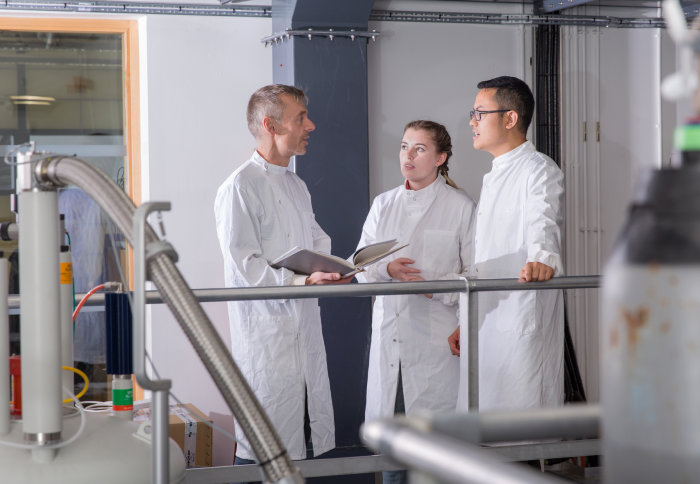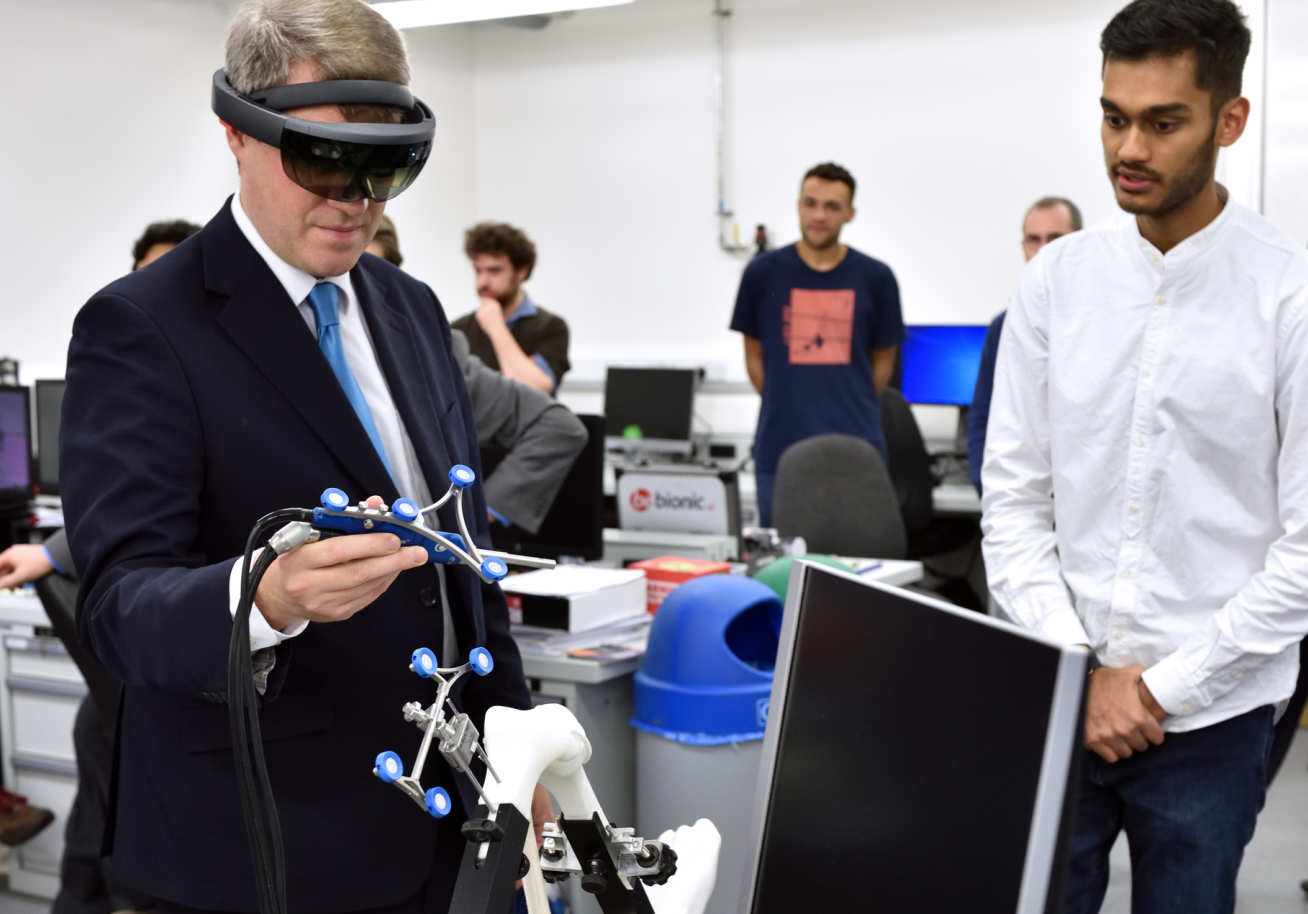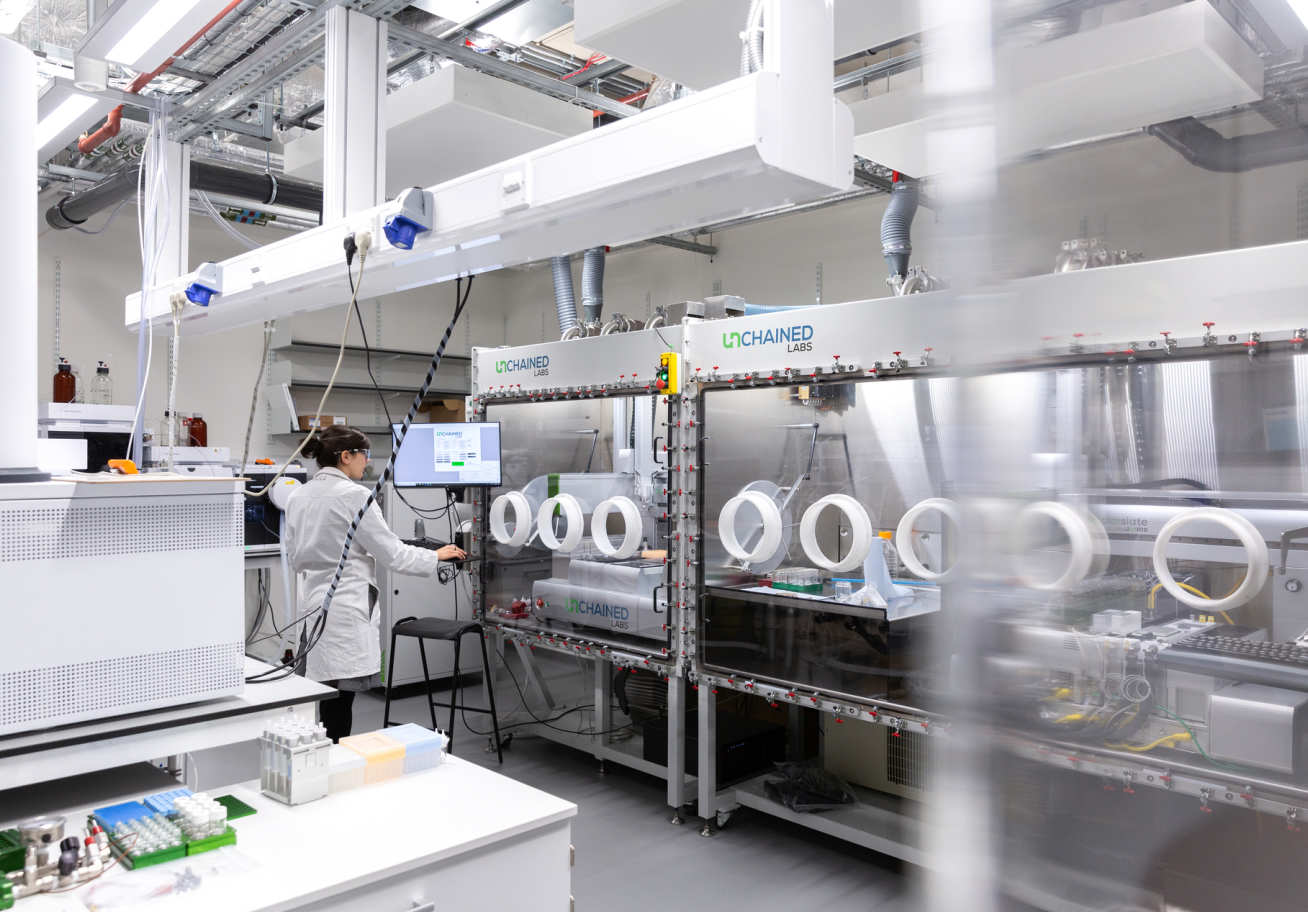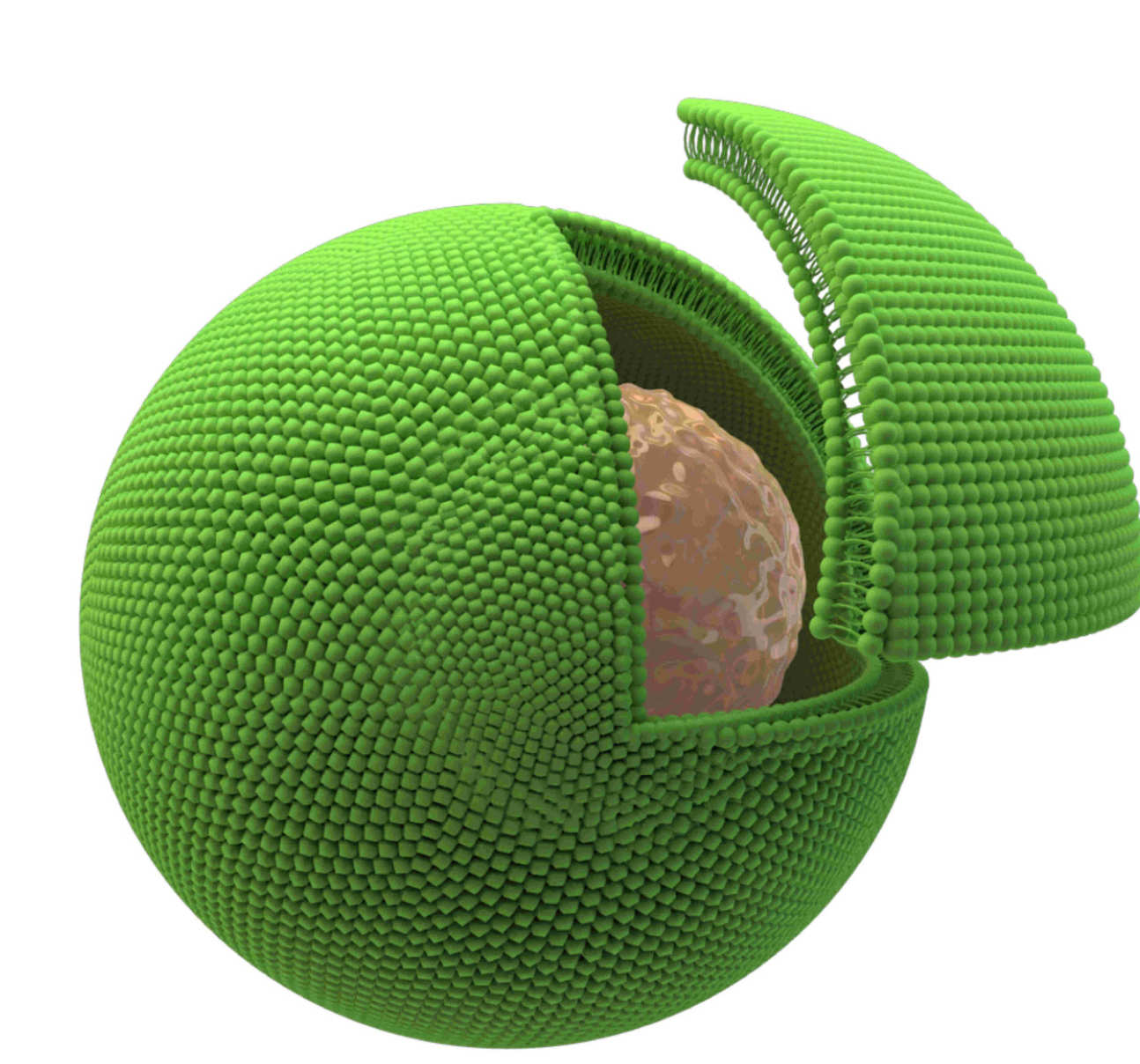Imperial wins funding to train hundreds of PhD students at six new centres

Funding from the Engineering and Physical Sciences Research Council will allow six Centres for Doctoral Training to fund PhD students for four years.
Each Centre is expected to receive between £5-7 million over the next nine years to train cohorts of PhD students in priority areas of research, including bioengineering, machine learning and next-generation chemical synthesis.
The Centres for Doctoral Training at universities across the country will offer the next generation of PhD students the ability to get ahead of the curve. Chris Skidmore Science and Innovation Minister
Imperial was successful in securing funding for three new Centres for Doctoral Training (CDTs) and three renewal grants for existing CDTs. The EPSRC will fund 40 PhD students per CDT over five years, with extra funding coming from industry partners and the College.
Professor Nick Jennings, Vice-Provost (Research and Enterprise) at Imperial, said: “I am very pleased that we will be leading six centres that will train around 300 PhD students in the coming years.
“We are also partnering in six more centres led by other institutions, highlighting our collaborative nature and wide participation across the scheme. We are also pleased to support the centres with £1m of bursary support from the College to support their important activities.”
As well as a research element, students trained through CDTs receive technical and transferrable skills training. The CDTS also aim to provide a supportive and exciting environment for students, creating new working cultures, building relationships between teams in universities and forging lasting links with industry.

Science and Innovation Minister Chris Skidmore said: “The Centres for Doctoral Training at universities across the country will offer the next generation of PhD students the ability to get ahead of the curve.
"In addition, this has resulted in nearly £400 million being leveraged from industry partners. This is our modern Industrial Strategy in action, ensuring all corners of the UK thrive with the skills they need for the jobs of tomorrow.
“As Science Minister, I’m delighted we’re making this massive investment in postgraduate students as part of our increased investment in R&D.”
New centres
Modern Statistics and Statistical Machine Learning
Director: Professor Axel Gandy, Department of Mathematics
The new EPSRC CDT in Modern Statistics and Statistical Machine Learning (StatML) is led by Imperial with Oxford as an equal partner.
It aims to train the next generation of leaders at the intersection of statistics and computer science, powering the artificial intelligence (AI) revolution. Students will undertake fundamental research to develop novel theory and methods and work with industrial and academic partners to apply their research to make real-world breakthroughs in pressing problems in government, medicine, industry and science.
The CDT will create a hub of training and research that is unrivalled anywhere in Europe. Professor Axel Gandy
CDT Director Professor Gandy said: "The CDT will bring outstanding research capability from two world-leading universities together, as well as a great set of partners. It will create a hub of training and research that is unrivalled anywhere in Europe."
Dr Julien Cornebise, Director of Research and Head of the London office at industrial partner Element AI, said: "The Element AI London team takes great pride in supporting the Imperial-Oxford CDT. Machine learning and computational statistics are having an incredible impact on society.
"Both seasoned and new researchers have the ongoing responsibility to ground their algorithms in the most rigorous fundamentals and be critics of their own work. The development and training of the brightest young minds in centres of scientific excellence is a key component of society’s future – and we are proud to be a supporting participant.”
Next Generation Synthesis & Reaction Technology
Director: Professor Mimi Hii, Department of Chemistry
This CDT forms a key component of the recently opened Centre for Rapid Online Analysis of Reactions (ROAR) at Imperial. The mission of ROAR is to discover and develop the next generation of automated synthesis and analytical technologies, enabling more efficient discovery and creation of new molecules for medicine, materials and agriculture.

ROAR will collaborate with industry partners to continually improve the equipment and protocols for rapid molecular synthesis, with the aim of becoming the go-to provider for solutions for industrial and societal challenges.
Students will gain skills in data-intensive synthesis, including analytical science, automation and robotics, reaction engineering and mathematical data analysis.
BioDesign Engineering
Director: Dr Geoff Baldwin, Department of Life Sciences
The new EPSRC CDT in BioDesign Engineering is being led by Imperial together with University of Manchester and University College London. Synthetic biology is of great strategic relevance to the UK, and is now worth £220bn to the UK economy. This CDT will integrate data science alongside engineering and biology as the three key pillars of the training platform. This reimagining as 'BioDesign Engineering' encompasses a renewed vision for synthetic biology.
CDT Director Dr Geoff Baldwin said: “We are tremendously excited by the opportunity that this CDT brings, by working together with our excellent colleagues at UCL and Manchester, we will have opportunities to implement the renewed training vision across a hub of synthetic biology activity that will be equal to anything in the world.”
Renewed centres
Chemical Biology - Innovation for the Life Sciences
Director: Professor Oscar Ces, Department of Chemistry
This CDT is part of the Institute of Chemical Biology, an established Imperial centre developing tools and technologies to study biological problems. This includes the use of new molecules, new measurement tools and novel calculation and modelling approaches.
 By combining these tools and technologies with breakthroughs in the fourth industrial revolution, such as automation and additive manufacturing, the CDT aims to train PhD graduates able to embrace the industrialisation of the life sciences.
By combining these tools and technologies with breakthroughs in the fourth industrial revolution, such as automation and additive manufacturing, the CDT aims to train PhD graduates able to embrace the industrialisation of the life sciences.
Through the CDT, students will addresses challenges in the pharmaceutical, biomedical, personal care and agricultural sectors, including improving photosynthesis for higher crop yields, finding new ways to deliver drugs inside the body and discovering new potential cancer drug targets.
The Advanced Characterisation of Materials
Director: Professor Stephen Skinner, Department of Materials
The CDT in the Advanced Characterisation of Materials is a joint centre with UCL and Trinity College Dublin. The Centre trains students to apply materials science to areas like energy and healthcare.
Professor Skinner said: “We are delighted to have the EPSRC renew the funding for the Centre. Our training helps PhD students directly address the needs of the UK science and engineering community, and reinforces international research links with industry, academia and national facilities – just what they need for successful research careers.”
Nuclear Energy Futures
Director: Dr Mark Wenman, Department of Materials
The CDT in Nuclear Energy Futures trains the next leaders in nuclear energy. The Centre focuses on key challenges for the industry such as reducing costs of both nuclear waste disposal and building new nuclear power stations. It also looks at future power station designs and fusion power.
Dr Wenman said: “Our programme features key nuclear disciplines to ensure students have a broad understanding of how their research fits the nuclear landscape. This lets them hit the ground running when they enter the industry.”

Centres hosted by other universities with Imperial as a lead partner
- Geometry and Number Theory at the Interface – University College London – Imperial lead: Professor Alessio Corti, Department of Mathematics
- Smart Medical Imaging - King's College London – Imperial lead: Professor Nicholas Long, Department of Chemistry
- Future Innovation in Non-Destructive evaluation (FIND) – University of Bristol – Imperial lead: Professor Peter Cawley and Professor Mike Lowe, Department of Mechanical Engineering
- Mathematics of Random Systems: Analysis, Modelling and Simulation – University of Oxford – Imperial lead: Dr Tom Cass, Department of Mathematics
- Multi-scale Aerosol and Droplet Science – University of Bristol – Imperial lead: Dr Marc Stettler, Department of Civil and Environmental Engineering
- Prosthetics and Orthotics – University of Salford – Imperial lead: Professor Anthony Bull, Department of Bioengineering
Article supporters
Article text (excluding photos or graphics) © Imperial College London.
Photos and graphics subject to third party copyright used with permission or © Imperial College London.
Reporter
Hayley Dunning
Communications Division